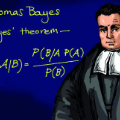In large-scale multiple hypothesis testing problems, the false discovery exceedance (FDX) provides a desirable alternative to the widely used false discovery rate (FDR) when the false discovery proportion (FDP) is highly variable. We develop an empirical Bayes approach to control the FDX. We show that, for independent hypotheses from a two-group model and dependent hypotheses from a Gaussian model fulfilling the exchangeability condition, an oracle decision rule based on ranking and thresholding the local false discovery rate (lfdr) is optimal in the sense that the power is maximized subject to the FDX constraint. We propose a data-driven FDX procedure that uses carefully designed computational shortcuts to emulate the oracle rule. We investigate the empirical performance of the proposed method using both simulated and real data and study the merits of FDX control through an application for identifying abnormal stock trading strategies.
翻译:在大规模多重假设测试问题中,当误发现比例(FDP)高度不稳定时,误发现超限(FDX)相比广泛使用的误发现率(FDR)更具有优越性。我们开发了一种经验贝叶斯方法来控制FDX。我们展示了,对于来自两组模型的独立假设和满足交换性条件的高斯模型的相关假设,基于对lfdr进行排名和阈值化的全知决策规则在约束FDX方面是最优的。我们提出了一种数据驱动的FDX过程,使用经过精心设计的计算快捷方式来模拟全知规则。我们使用模拟和实际数据调查了所提出方法的经验表现,并通过识别异常股票交易策略的应用研究了FDX控制的优点。


